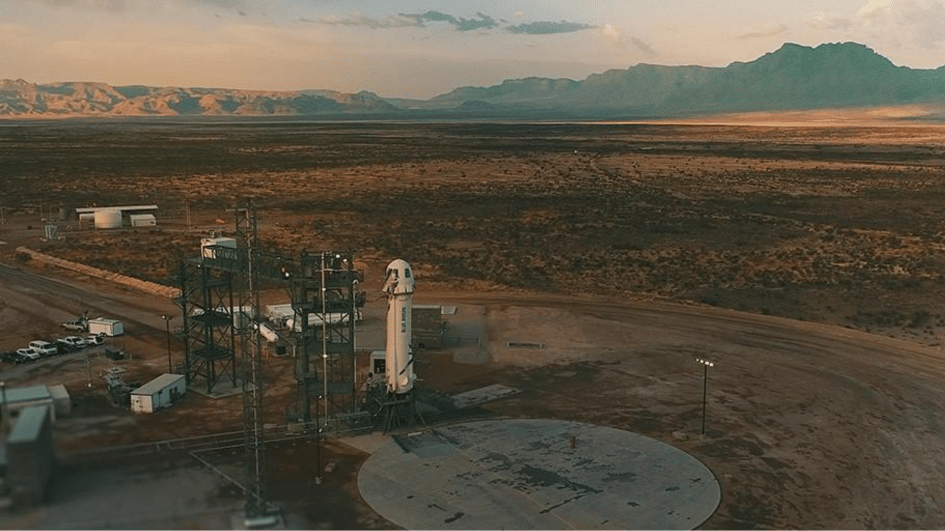
Blue Origin launched its first rocket in more than a year on Dec. 19 reviving the company's fortunes with a successful return to space following an uncrewed crash in 2022.
Though mission NS-24 carried a payload of science experiments, not people, it paves the way for Jeff Bezos' aerospace enterprise to resume taking wealthy thrill-seekers to the final frontier.
The New Shepard suborbital rocket blasted off from the pad at Launch Site One, near Van Horn, Texas.
"Demand for New Shepard flights continues to grow and we're looking forward to increasing our flight cadence in 2024," said Phil Joyce, the company's senior vice president.
On Sept. 12, 2022, a Blue Origin rocket became engulfed in flames shortly after launch.
The accident prompted a year-long probe by the Federal Aviation Administration (FAA).
The regulator issued a set of corrective actions for Blue Origin to undertake before it could resume flying, including the redesign of certain engine parts.
In all, Blue Origin has carried out six crewed flights - some passengers were paying customers and others were guests - since July 2021, when Bezos himself took part in the first.
While Blue Origin has been grounded, rival Virgin Galactic - the company founded by British billionaire Richard Branson - has pressed on, with five commercial flights this year.
The two companies compete in the emerging space tourism sector, operating in suborbital space.
While Blue Origin launches a small rocket vertically, Virgin Galactic uses a large carrier plane to gain altitude and then drop off a smaller, rocket-powered spaceplane that completes the journey to space.
Virgin Galactic tickets were sold for between $200,000-$450,000. Blue Origin does not publicly disclose its ticket prices.